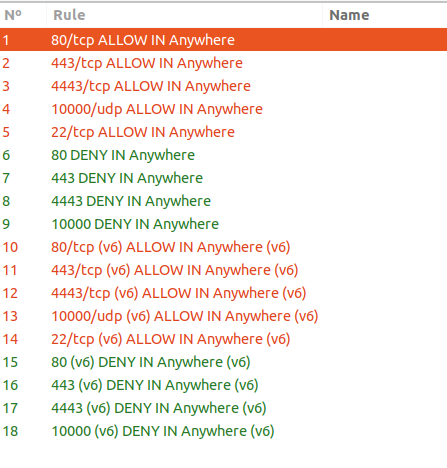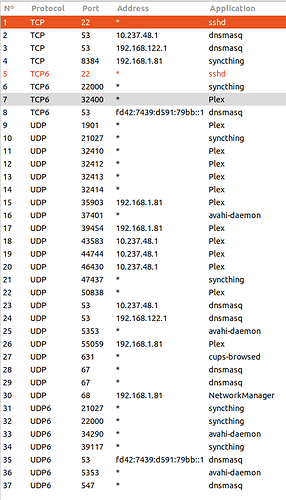@simos
@tomp
This is still not working for me using 20.04 host, a new profile including the “on-link: true” 20.04 container
I hope the following is enough information to perhaps let me know what might be the problem.
Sorry this linux forum editor deletes the preceeding “spaces” in the config lines.
I have recreated everything using Simo’s updated Blog post which now includes
the “on-link: true”.
Created a container name test, using the default and routed-profile
In the container I named test:
I can Ping my Host…
root@test:~# ping 192.168.1.81
PING 192.168.1.81 (192.168.1.81) 56(84) bytes of data.
64 bytes from 192.168.1.81: icmp_seq=1 ttl=64 time=0.053 ms
64 bytes from 192.168.1.81: icmp_seq=2 ttl=64 time=0.057 ms
^C
— 192.168.1.81 ping statistics —
2 packets transmitted, 2 received, 0% packet loss, time 1005ms
rtt min/avg/max/mdev = 0.053/0.055/0.057/0.002 ms
I can Ping google Name Server by IP…
root@test:~# ping 8.8.8.8
PING 8.8.8.8 (8.8.8.8) 56(84) bytes of data.
64 bytes from 8.8.8.8: icmp_seq=1 ttl=115 time=26.6 ms
64 bytes from 8.8.8.8: icmp_seq=2 ttl=115 time=28.5 ms
^C
— 8.8.8.8 ping statistics —
2 packets transmitted, 2 received, 0% packet loss, time 1002ms
rtt min/avg/max/mdev = 26.555/27.522/28.489/0.967 ms
I still cannot Ping google by Name
root@test:~# ping www.google.com
ping: www.google.com: Temporary failure in name resolution
All of the previously recommended Profile config info is below.
I am using my WiFi
==============================================================================
My newly created profile which includes (on-link: true)
## This is a YAML representation of the profile.
### Any line starting with a '# will be ignored.
###
### A profile consists of a set of configuration items followed by a set of
### devices.
###
### An example would look like:
### name: onenic
### config:
### raw.lxc: lxc.aa_profile=unconfined
### devices:
### eth0:
### nictype: bridged
### parent: lxdbr0
### type: nic
###
### Note that the name is shown but cannot be changed
config:
user.network-config: |
version: 2
ethernets:
eth0:
addresses:
- 192.168.1.200/32
nameservers:
addresses:
- 8.8.8.8
search: []
routes:
- to: 0.0.0.0/0
via: 169.254.0.1
on-link: true
description: Default LXD profile
devices:
eth0:
ipv4.address: 192.168.1.200
nictype: routed
parent: wlp3s0
type: nic
name: routed
used_by:
==============================================================================
in container:
/etc/resolv.conf
# This file is managed by man:systemd-resolved(8). Do not edit.
#
# This is a dynamic resolv.conf file for connecting local clients to the
# internal DNS stub resolver of systemd-resolved. This file lists all
# configured search domains.
#
# Run “resolvectl status” to see details about the uplink DNS servers
# currently in use.
#
# Third party programs must not access this file directly, but only through the
# symlink at /etc/resolv.conf. To manage man:resolv.conf(5) in a different way,
# replace this symlink by a static file or a different symlink.
#
# See man:systemd-resolved.service(8) for details about the supported modes of
# operation for /etc/resolv.conf.
nameserver 127.0.0.53
options edns0
# systemd-resolve --status
Global
LLMNR setting: no
MulticastDNS setting: no
DNSOverTLS setting: no
DNSSEC setting: no
DNSSEC supported: no
DNSSEC NTA: 10.in-addr.arpa
16.172.in-addr.arpa
168.192.in-addr.arpa
17.172.in-addr.arpa
18.172.in-addr.arpa
19.172.in-addr.arpa
20.172.in-addr.arpa
21.172.in-addr.arpa
22.172.in-addr.arpa
23.172.in-addr.arpa
24.172.in-addr.arpa
25.172.in-addr.arpa
26.172.in-addr.arpa
27.172.in-addr.arpa
28.172.in-addr.arpa
29.172.in-addr.arpa
30.172.in-addr.arpa
31.172.in-addr.arpa
corp
d.f.ip6.arpa
home
internal
intranet
lan
local
private
test
Link 2 (eth0)
Current Scopes: DNS
DefaultRoute setting: yes
LLMNR setting: yes
MulticastDNS setting: no
DNSOverTLS setting: no
DNSSEC setting: no
DNSSEC supported: no
Current DNS Server: 8.8.8.8
DNS Servers: 8.8.8.8
==============================================================================
in container:
/etc/netplan/50-cloud-init.yaml
# This file is generated from information provided by the datasource. Changes
# to it will not persist across an instance reboot. To disable cloud-init’s
# network configuration capabilities, write a file
# /etc/cloud/cloud.cfg.d/99-disable-network-config.cfg with the following:
# network: {config: disabled}
network:
ethernets:
eth0:
addresses:
- 192.168.1.200/32
nameservers:
addresses:
- 8.8.8.8
search: []
routes:
- on-link: true
to: 0.0.0.0/0
via: 169.254.0.1
version: 2
==============================================================================
In the contain named “test”
root@test:~# ip route
default via 169.254.0.1 dev eth0 proto static onlink


